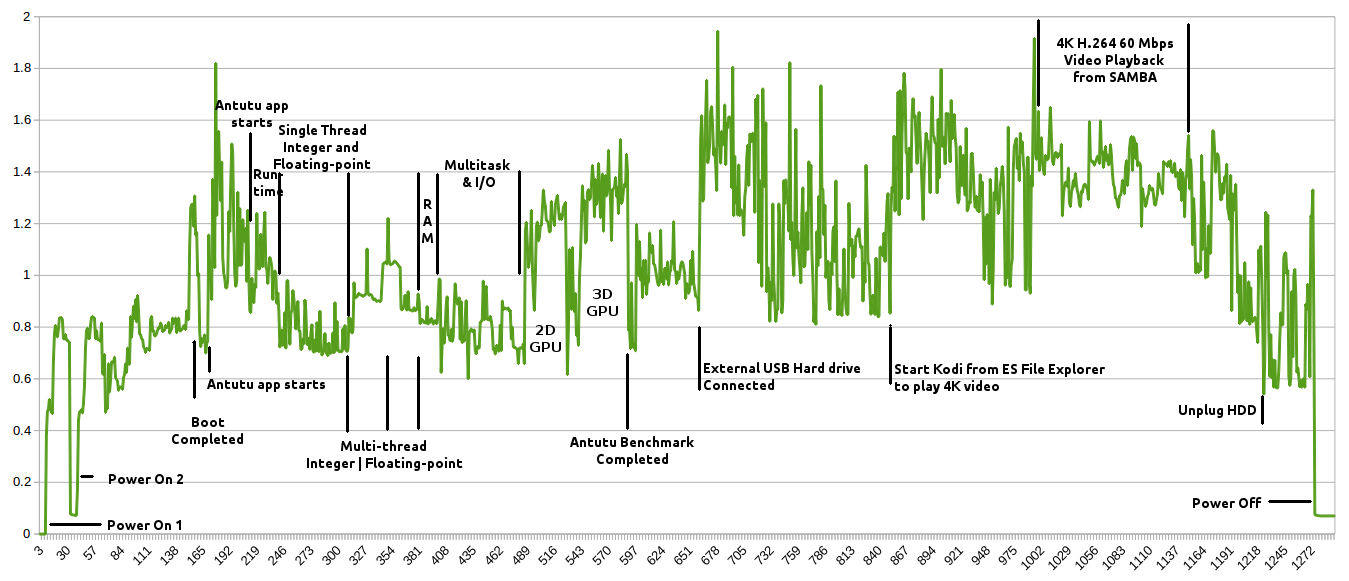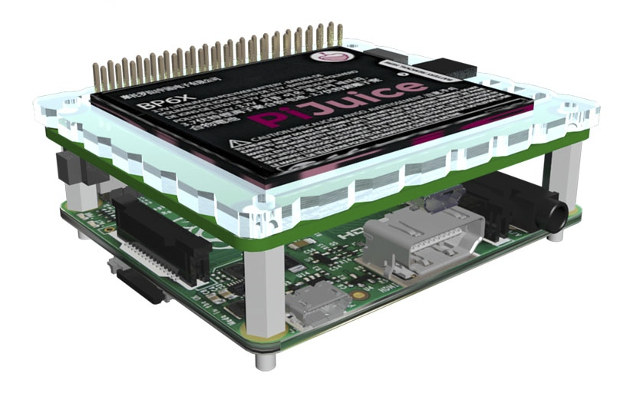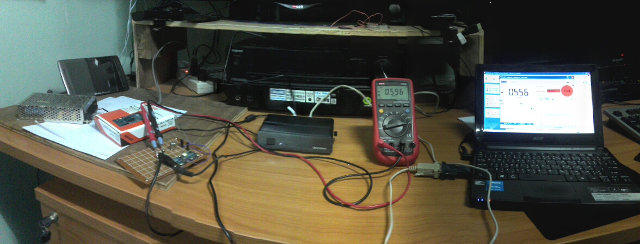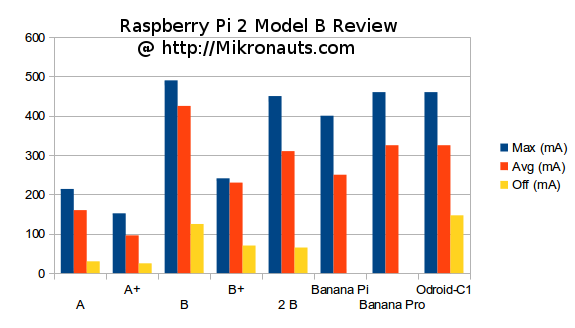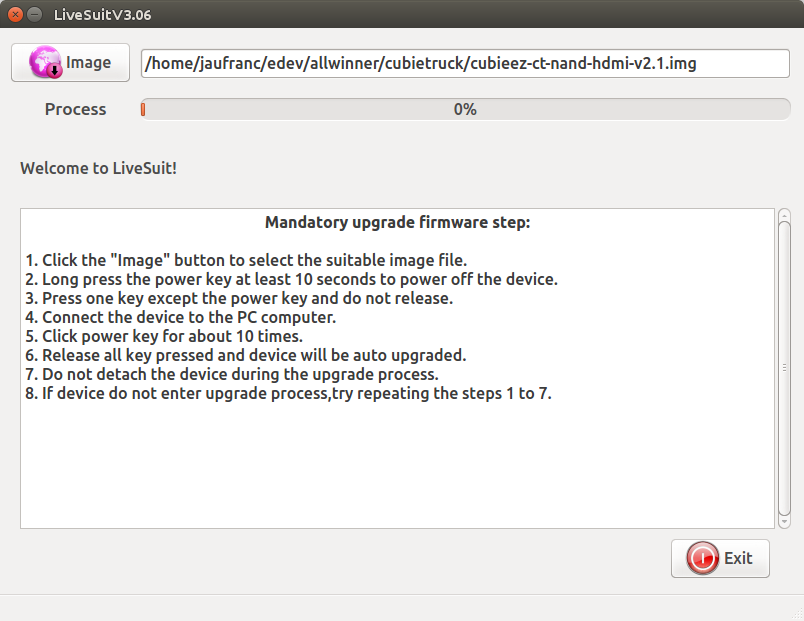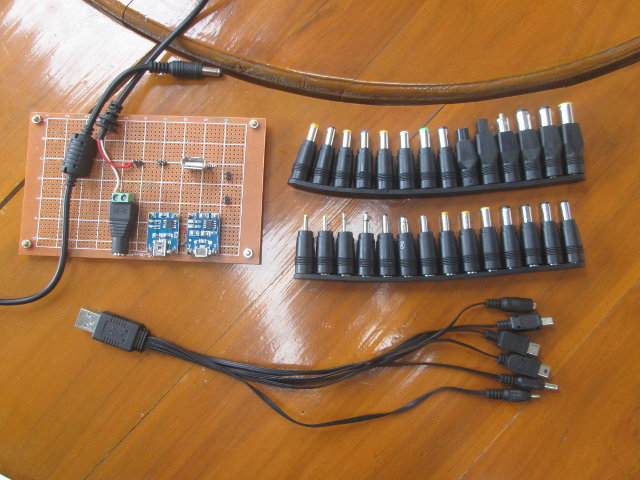I’ve already measured power consumption running Antutu and playing a 4K video on Rockchip RK3288 and Amlogic S812 platform, as described in “Power Consumption of Amlogic S812 and Rockchip RK3288 TV Boxes“, and now that I have an Intel Bay Trail-T mini PC running Android 4.4 with Wintel W8, I was interested in comparing its power consumption to the ARM platform. [Update: I forgot to mention measurements have all been done @ ~5V.] The test normally consists in several steps: Boot the device Run the latest Antutu benchmark Connect a USB hard drive Play a 4K video in Kodi from the hard drive Diconnect the hard drive Power off the device But since the current draw was a little to high at times, I got a few issues with my setup. First, I had to boot twice hence the “Power On 1” and “Power On 2” strings on the chart, […]
PiJuice Battery HAT Module for the Raspberry Pi Boards Comes with an Optional Solar Panel (Crowdfunding)
The Raspberry Pi is a low power board that can be powered a few hours or a few days with batteries, and the easiest solution is probably to use a USB power bank connected to the micro USB port of the board, but the solution is not really integrated. That’s where PiJuice comes into play. It’s a HAT compatible module that connects nicely to the latest Raspberry Pi boards with 40-pin header (A+, B+ and B2), and include a 1,400 mAh battery that can be used as UPS (Uninterrupted Power Supply), an RTC, and more. Key features of PiJuice HAT: 1400 mAh Lipo battery, good enough to last up to 24 hrs in constant use. 5,000 mAh batteries are also said to be supported. Full UPS (Uninterrupted Power Supply) solution Integrated RTC (Real Time Clock) On board intelligent on/off switch Low power deep-sleep state with wake on interrupt/calendar event On […]
Power Consumption of Amlogic S812 and Rockchip RK3288 TV Boxes
The recent post comparing the power consumption of ODROID-C1 vs Raspberry Pi boards, as made me want to give another try at power consumption measurements. Regular reader already know I made a power measurement board and cables capable of hading different connectors (micro USB, mini USB, power barrels, etc..), but eventually it failed to deliver enough current to the boards for any meaning testing. But since I now have a better power supply, and multi-meter, it was worth another try, especially since I could draw some pretty charts. I decided to test the three most popular Chinese SoCs for mini PCs namely Amlogic S812 (4x Cortex A9), Rockchip RK3288 (4x Cortex A17), and Allwinner A80 (4x Cortex A15 + 4x Cortex A7) using respectively Eny M8S, Open Hour Chameleon, and A80 OptimusBoard. If you are paying attention, you must have noticed Allwinner A80 is not part of the title, that […]
Raspberry Pi, Banana Pi, and ODROID-C1 Boards Power Consumption
Mikronauts has recently reviewed MIPS Creator CI20, ODROID-C1, and Raspberry Pi 2 Model B. R-PI 2 review is especially interesting since this is the last one, and the reviewer goes to compare all Raspberry Pi models (A, A+, B, B+ and 2 B) with Banana Pi, Banana Pro, MIPS Creator CI20, and ODROID-C1 development boards. The benchmark results are good to know, and expected with ODROID-C1 the fastest of the bunch both in terms of CPU and storage performance, but here I’ll just share the results of his power consumptions testing. Since all platforms are powered by a 5V power supply, I’ve converted the results into watts. Model Max (W) Avg (W) Off (W) A 1.07 0.80 0.15 A+ 0.76 0.48 0.125 B 2.45** 2.12 0.62 B+ 1.20 1.15 0.35 2 B 2.25 1.55 0.325 Banana Pi 2 1.25 0 Banana Pro 2.3 1.62 0 Odroid-C1 2.3 1.62 0.735* * […]
Linaro Connect Hong Kong 2015 Schedule and Demos
Linaro Connect Hong Kong 2015 will take place on February 9 – 13,2015 in Hong Kong, and the organization has released the schedule for the five days events with keynotes, sessions, and demos. Each day will start with the keynote including speakers such as: George Grey, Linaro CEO, who will welcome attendees to Linaro Connect, and provide an update on the latest Linaro developments Jon Masters, Chief ARM Architect, Redhat, who will present Red Hat update and latest ARMv8-A demonstrations Dejan Milojicic, Senior Researcher & Manager, HP Labs Bob Monkman, Enterprise Segment Marketing Manager, ARM, will discuss about the impact of ARM in next generation cloud and communication network infrastructure Greg Kroah-Hartman, Linux Foundation Fellow, will introduce the Greybus Project (Linux for Project Ara modular phones) Warren Rehman, Android Partner Engineering Manager, Google The agenda also features sessions covering Android, ARMv8-A, Automation & Validation, Digital Home, Enterprise Servers, LAVA, Linux […]
CubieTruck Metal Case Kit Getting Started Guide and Review
I’ve received CubieTruck Metal Case kit just over a month ago, but just like for Ubuntu on ODROID-XU3 Lite, the board could not get HDMI EDID info from my Panasonic TV, which led to a crash at boot time. CubieTech has now fixed the issue, so I’ve finally been able to complete the review with Cubieez (Cubie Easy) distribution, pre-installed on the board, and based on Debian 7.6. You can get the full hardware specs on my previous post, but the kits is comprised of four parts: CubieTruck development based on Allwinner A20 dual core processor, a rugged metallic enclosure, a 128GB SSD, and a 5,300 mAh battery acting as a UPS. I’ll start by showing how to setup the board, test SATA and Gigabit Ethernet performance, check if the battery acts as expected, try to use the board as a desktop replacement with LibreOffice, Chromium, and so on, and […]
MT87 Digital Clamp Multimeter Hands On
When you want to measure power/current on electrical device, a kill-a-watt is the easiest method, but it’s not always possible for items like air conditioner, water pumps, etc… because they may simply be no plug to disconnect. Luckily, current clamps are made just for this purpose, where you simply place one of the two wires in a clamp / loop, and it magically measures the current. You can’t put both wires inside the loop or measurement will not work at all. The good news is that such devices are very inexpensive, and I bought MT87 digital clamp multimeter, which is also a multimeter adding voltage and resistance measurement capability, for just $11.33 on DealExtreme. MT87 comes with measurement leads (voltage/resistance only), and a user’s manual. The linked user’s manual is not exactly the same document, but very similar, and also refers to MT87C model which adds temperature measurement. There are […]
DIY Power Measurement Board
When I review media player or development boards, I’m often asked about power consumption figures. One way to measure power consumption is to use a Kill-a-Watt, but for low power devices it’s not always accurate enough, and it also includes the heat dissipation from the power adapter, which may or may not be useful depending on what you want to measure. For USB powered devices or boards, an easy way to measure power consumption is to use CHARGER Doctor, a small $5 USB dongle that displays both voltage and current alternatively. Unfortunately, most products I’ve received lately use barrel type connectors, so this little tool has not been as useful as I hoped. The only solution is then to measure voltage and current with a multimeter. Voltage is measured in parallel, so you just need to point the multimeter’s leads where you want to perform the measurements. However, the current […]


